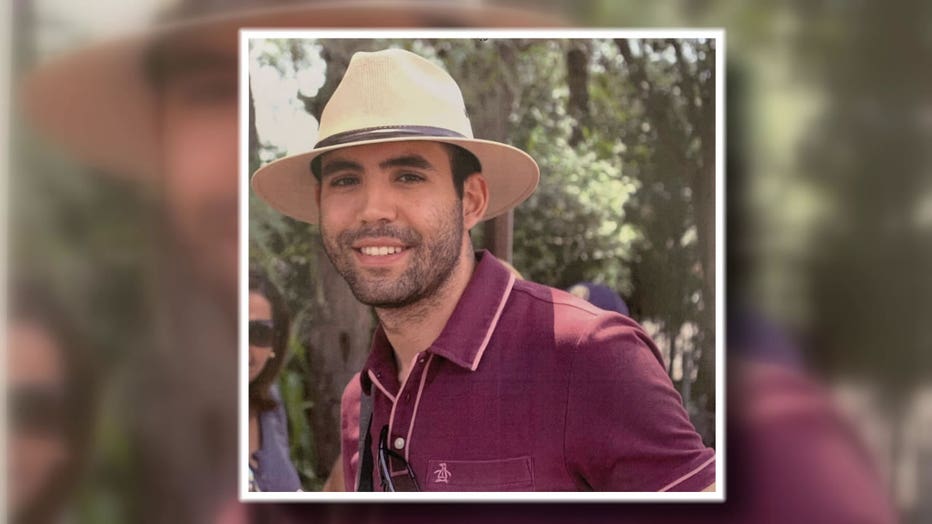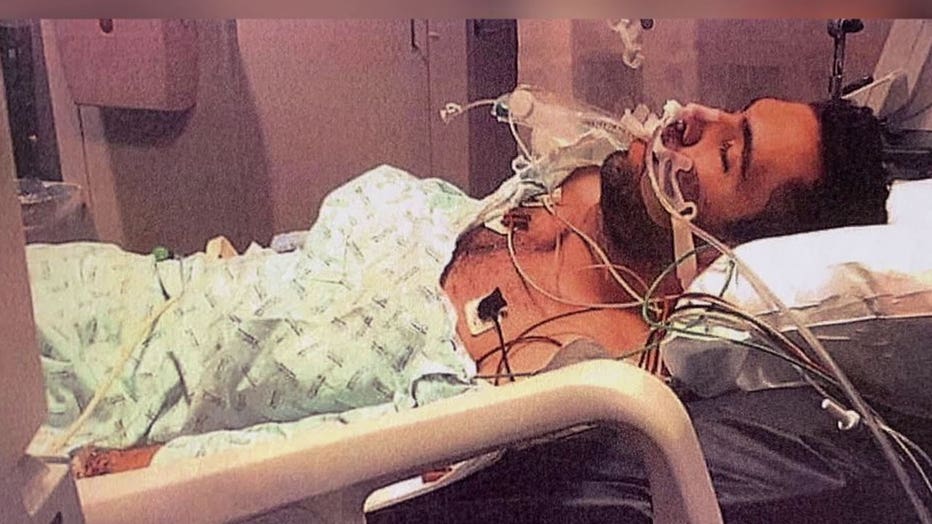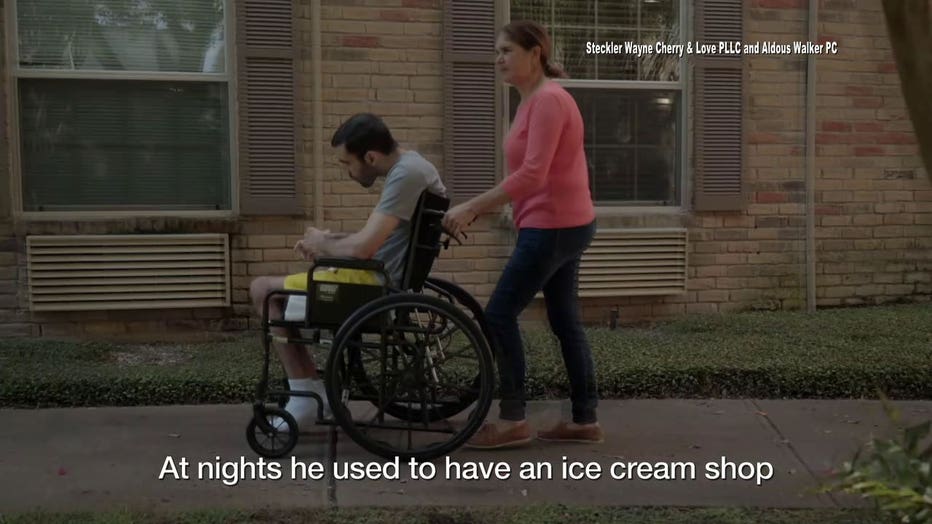Jury awards $21M to family of patient after simple leg surgery left him in a vegetative state
Jury awards $21M to family of patient after simple leg surgery left him in a vegetative state
27-year-old Carlos David Castro Rojas went to the hospital for surgery on a fracture in his shin. He now has the mental capacity of a one-year-old child.
DALLAS - A jury awarded more than $21 million to the family of a man left in a vegetative state after leg surgery in Dallas.
On Oct. 11, 2017, 27-year-old Carlos David Castro Rojas went to the hospital for surgery on a fracture in his shin.
During the surgery Rojas suffered from hypoxic ischemic encephalopathy, a brain injury caused by lack of blood flow and oxygen to the brain.
Rojas was left in a vegetative state, unable to do basic things, like communicate or feed himself.
Family upset over $12,903 bill after their son was nearly killed with an allegedly tainted IV bag
"A normal day for Carlos, I have to wake him up, clean him up, sit him down in his wheelchair, give him food," said his mother, Wilda Rojas, in Spanish in a video shown to the jury.

Rojas had come to the United States from Venezuela for a better life.
He had almost completed engineering school and was working a job hanging Christmas lights when he fell off a ladder, fracturing his left tibia.
As a healthy 27-year-old, the operation was only expected to take two hours.

"The day before he told me, no mom, it's just my knee, and it is a simple operation," said Rojas.
But at the end of the surgery, he wasn't waking up.
"It appears he suffered low blood pressure during the course of his procedure cutting off oxygen to his brain," said attorney Bruce Steckler. "When you don't have blood to your brain, it dies."
According to the lawsuit, Rojas's blood pressure dropped while his doctor was supervising four certified registered nurse anesthetists, or CRNAs, all with patients at the same time.
"As a result it is our position while that may be good business for Anesthesia Partners, it is not good medicine, because there is no way an anesthesiologist can supervise that many CRNAs at one time," said Steckler.
The practice is allowed in Texas, but Steckler says what people may not know, is that they have a choice.
"I think patients need to be apprised up front that they have a choice to get an anesthesiologist who has 4 years of medical school, 3 years of training and board certified, rather than a CRNA who may have a nursing degree and extra year of training," he said.
The doctor and the CRNAs are employed by U.S. Anesthesia Partners of Texas.
An attorney for the company told FOX 4 in statement:
Patricia Flesher with the American Association of Nurse Anesthesiology – an association not connected to this case - said in an email, "Certified Registered Nurse Anesthetists (CRNAs) not only have a significant amount of clinical experience before becoming a CRNA, but also years of training in anesthesia delivery that include thousands of hours of clinical experience."
She says it takes a minimum of 7 calendar years of education and experience to prepare a CRNA. She says that comes through a minimum 4-year undergraduate degree, one year of full-time work experience as a registered nurse in a critical care setting, and graduation from a minimum 2-year nurse anesthesia program.
Starting this year, all students must also be enrolled in a doctoral program. And according to the association’s website, starting in 2025, all students graduating from an accredited program must be awarded a doctoral degree.
Anesthesiologists, by comparison, must have 12 years of education and experience through, a 4-year undergraduate degree, 4 years of medical school, and 4 years of residency.
A fact sheet on the AANA’s website points out the CRNA model reduces costs for healthcare facilities. "As interests compete for limited resources in healthcare, groups and facilities seeking to minimize the cost of anesthesia services can achieve excellent cost savings as compared to other anesthesia practice models by the implementation of an all-CRNA model."
"AANA extends our sympathies to this patient and his family," Flesher said in an email.
Wilda Rojas says she went through three meetings where she was urged to take Carlos off life support.
She refused.
"I will take care of my son," she said. "He was everything to me."
An attorney says U.S. Anesthesia Partners of Texas plans to appeal the verdict.

Rojas will require 24-hour care for the rest of his life.
He has the mental capacity of about a one-year-old child, but he does express happiness when he is with his mother.

